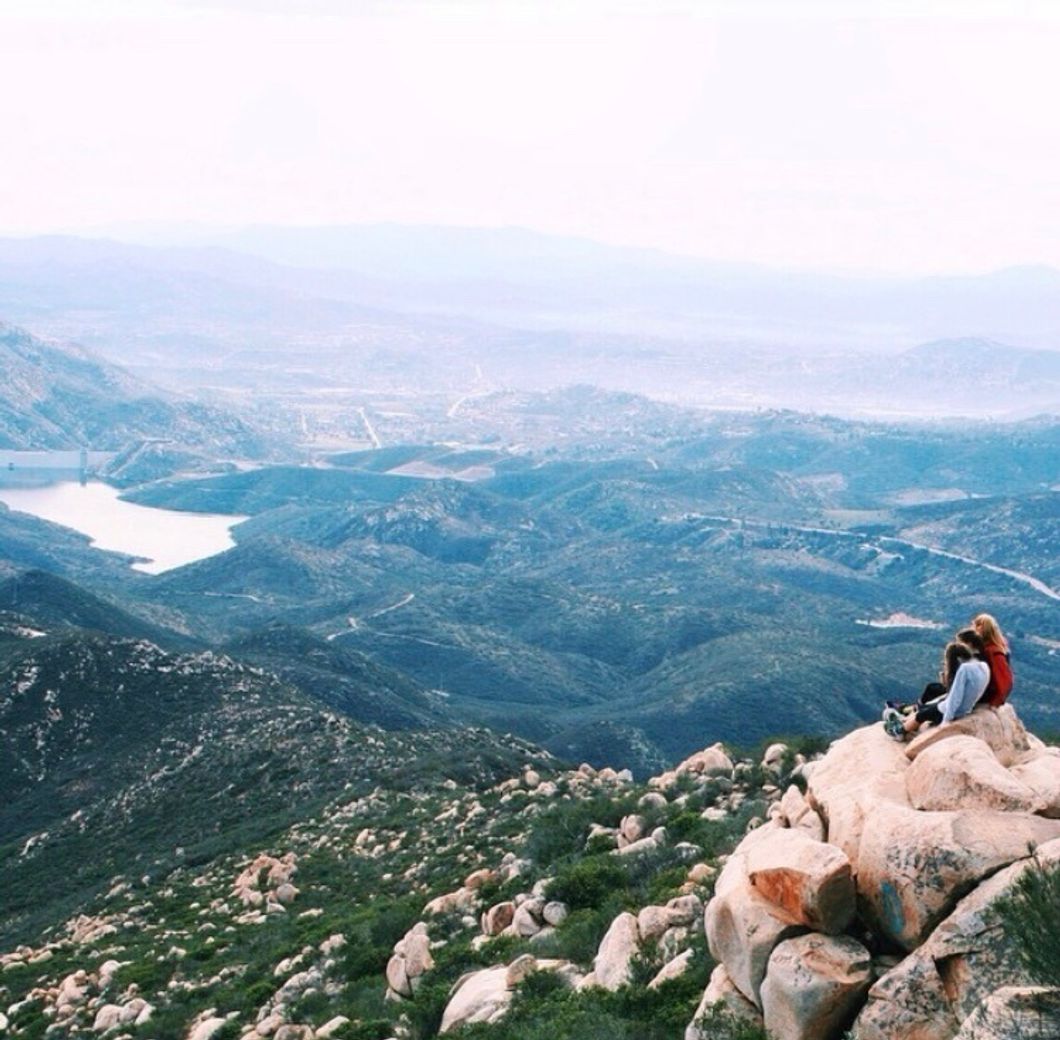On February 11, I found my theory of change with my journal and pen. I wanted people to recognize my name. I think I always had the tools to become that one-in-a-million but used them to build the wrong masterpiece. I know now that I have the power to do something great without seeking validation or prestige. I realize now that I have made a difference as the Abbey I am today. Any greater effect can begin as the smallest act for someone who pays it forward to someone who pays it forward and so on.
I will take arms against what the world threatens to become.
I am learning how to fight as I embark on this new part of my life's journey, every day closer to something bigger. It is frustrating to grow up learning about humanity as a beautiful thing, then witnessing the horrors of which humans are capable. We, collectively, are mankind.
We are members of the human family.
We cannot rely on materialistic, independent lives and ignore the other 99%. Fulfillment gained from this lifestyle is synthetic and shallow. We need change that breaks the surface, fills the heart, and lights up every nerve. A wise woman once said, change is going beyond the problem and the negativity that is presented by the system. We should find causes for which we are passionate, follow it, and work to let the seemingly voiceless feel heard.
Ultimately, we need love in every form there is.
We need different priorities and to escape ignorance. We need each other. We need to others to their feet so they can lend a hand to the next. I will put it this way: I can tell you I love you, but it is not until I support, care, hold, shelter, praise, and comfort you, that you will feel loved. My theory of change is that of accepting and embracing those we call the "other". I acknowledge how optimistic this sounds in theory. But the transformation I have made in my life – this complete turn of mind and heart – proves that I can transform. It gives me hope and leaves me with a purpose.
In a world so chaotic, having a purpose helps focus my overwhelming thoughts to prevent getting carried away by enthusiasm. It is simply a waste of time and energy to grow upset over what is wrong; instead, we must build common ground to bring even the most diverse individuals together for a cause. We see this exemplified in our racially disproportionate prison system. While it is difficult to empathize with incarcerated individuals, we must attempt to place ourselves in their shoes and fight on this uncommon ground to achieve justice in all aspects.
It is not about one helping the other, it is about functioning together to better the whole.
Orlando Fals Borda continues the discussion of purpose in his work, describing "the telos or purpose of society, without which… human life cannot be understood and social organization is impossible." He gives life to society's telos by explaining community as the control for inevitable violence among men. He acknowledges that there will never be full control as the previous sentence might suggest. Instead, "Human societies experience rhythms that lead from relative stability to intense change in order to arrive at another period of relative stability." Community is simply the momentum that swings the pendulum from one period to another.
While I agree we act together for social change, we as individual members of mankind must have our own purpose as well. In "Pedagogy of the Oppressed," Paulo Friere explains of those "outsiders" of society, "The solution is not to 'integrate' them into the structure of oppression, but to transform the structure so that they can become beings for themselves." We must not accept the roles we are given as "superiors" to vulnerable populations, but instead repair the "fragmented view of reality" with which we have been imposed. As Smith argues, "Living in the presence of difference and engaging with uncertainty are viewed as necessary experiences for individual and social development." This begins with internal reflexivity and strengthens as we educate each other through communication, working together as "co-investigators" to transform the world.
Progress can be harmed, however. It is a dangerous balance when participating and taking action for social justice; risks must be taken, but with every ground-breaking movement of subversion to protest the established order, there is risk for further damage to an individual and his/her passion and the strength of a society as members attempt to stand up.
But we must refuse to stand down.
















